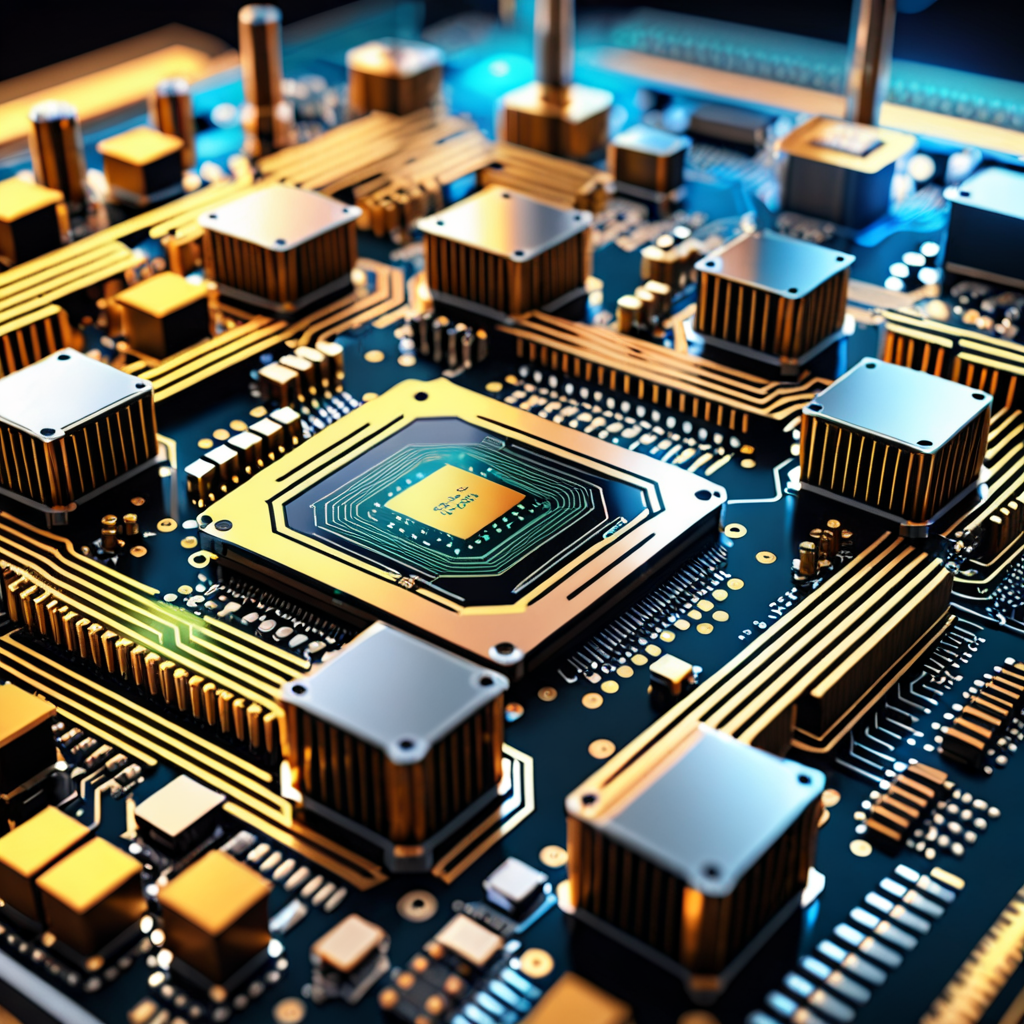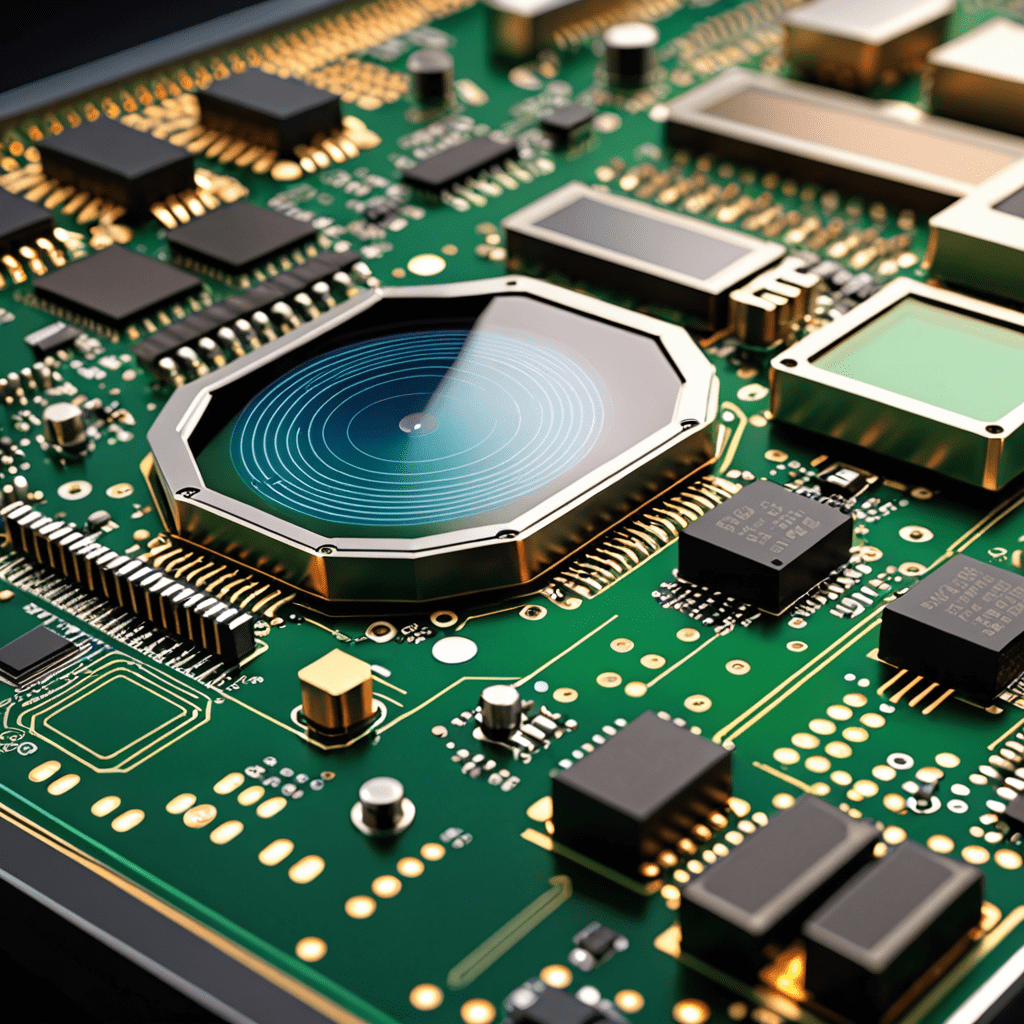
Nanotechnology in Quantum Computing: Advancements in Computing with Nanotech
The Intersection of Nanotechnology and Quantum Computing
Nanotechnology and quantum computing are two cutting-edge fields that hold immense promise for revolutionizing the way we process, store, and transmit information. As nanotechnology deals with the manipulation of materials on a molecular or atomic scale, and quantum computing harnesses the principles of quantum mechanics to perform complex calculations, the convergence of these fields opens up new possibilities in computing.
How Nanotechnology Enhances Quantum Computing
Nanotechnology plays a crucial role in advancing quantum computing by enabling the fabrication of nano-sized components that form the building blocks of quantum computers. These nanostructures, such as quantum dots and nanowires, exhibit unique quantum properties that can be harnessed to create qubits – the fundamental units of quantum information processing.
Benefits of Nanotech in Quantum Computing
The integration of nanotechnology in quantum computing offers several key advantages, including increased scalability, faster operation speeds, and improved quantum coherence. Nanoscale devices allow for greater control over quantum systems, leading to enhanced performance and efficiency in quantum computation tasks.
Challenges and Opportunities in Nanotech-Enabled Quantum Computing
Despite the remarkable progress in leveraging nanotechnology for quantum computing, there are challenges that need to be addressed, such as maintaining qubit stability and reducing error rates. However, ongoing research and development efforts present exciting opportunities to overcome these obstacles and unlock the full potential of nanotech-enabled quantum computing.
The Future of Computing: Nanotechnology and Quantum Computing Synergy
The synergy between nanotechnology and quantum computing holds the key to shaping the future of computing technologies. As researchers continue to explore novel nanomaterials and innovative quantum computing architectures, we can expect significant advancements in computational power, data security, and algorithm optimization.
Real-World Applications of Nanotechnology in Quantum Computing
From optimizing drug discovery processes and enhancing cybersecurity measures to revolutionizing AI and machine learning algorithms, the practical applications of nanotechnology in quantum computing are diverse and impactful. Industries across various sectors are increasingly leveraging these technologies to drive innovation and achieve breakthroughs in their respective fields.
In Conclusion
Nanotechnology in quantum computing represents a powerful convergence of scientific disciplines that has the potential to reshape the computing landscape. By harnessing the unique properties of nanostructures at the quantum level, researchers are paving the way for unprecedented advancements in computing power, speed, and efficiency. As we delve deeper into this fascinating realm of technology, the possibilities for transformative breakthroughs seem limitless.
What is Quantum Computing and How is Nanotechnology Advancing it?
What is Quantum Computing?
Quantum computing utilizes quantum-mechanical phenomena like superposition and entanglement to perform operations on data. It has the potential to solve complex problems exponentially faster than classical computers.
How is Nanotechnology Contributing to Advancements in Quantum Computing?
Nanotechnology plays a crucial role in quantum computing by enabling the fabrication of qubits, the building blocks of quantum computers, at the nanoscale. Nanoscale materials and structures help in achieving longer coherence times and improved performance of qubits.
What Role Does Nanoscale Engineering Play in Quantum Computing?
How Does Nanoscale Engineering Impact Quantum Computing?
Nanoscale engineering allows for precise manipulation and control of quantum systems, leading to advancements in quantum computing. It involves designing and fabricating nanoscale devices and structures to improve the efficiency and reliability of quantum computers.
What are Some Examples of Nanoscale Technologies Used in Quantum Computing?
Nanoscale technologies like nanowires, quantum dots, and superconducting nanoelectronics are integral to the development of quantum computers. These nanostructures help in creating and manipulating qubits with high fidelity and scalability.


